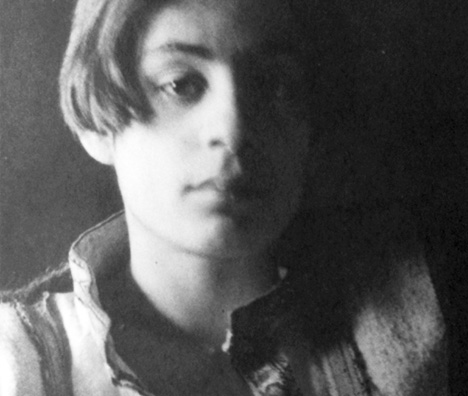Opening the door for Kahlil Gibran signifies not merely an appreciation of his literary contributions but rather an exploration into the spiritual essence that reverberates through his works. Gibran, a luminary in the realm of poetic prose, intricately interwove themes of love, unity, and the human condition, which resonate profoundly with the principles of the Bahá’í Faith. This convergence invites a deeper examination of the teachings that elevate both Gibran’s writings and Bahá’í philosophy as pathways toward spiritual enlightenment.
Gibran was born in 1883 in modern-day Lebanon and later emigrated to the United States, where he emerged as a preeminent figure in the early 20th century literary renaissance. His magnum opus, “The Prophet,” captures the quintessence of his spiritual insights, reflecting a universality that transcends cultural boundaries. Similarly, the Bahá’í Faith, founded by Bahá’u’lláh in the late 19th century, champions principles of unity, equality, and the essential oneness of humanity. This shared ethos creates a fertile ground for juxtaposing Gibran’s literary sentiments with Bahá’í teachings.
The ethical framework of the Bahá’í Faith promotes the idea that all religions stem from a single divine source. To this end, the belief in the unity of religious truth resonates deeply with Gibran’s perspective on spirituality. Gibran’s assertion that “Your soul is oftentimes a battlefield” highlights the internal struggles individuals face, a concept akin to the Bahá’í principle that emphasizes the importance of self-reflection and personal growth. Both Gibran and Bahá’í teachings advocate for self-awareness as a means to attain a higher spiritual state.
Central to both Gibran’s philosophy and the Bahá’í Faith is the dialogue surrounding the nature of love. In “The Prophet,” Gibran proclaims, “Love knows not its own depth until the hour of separation.” This poignancy underscores love as an intrinsic element of human existence, propelling individuals toward communal harmony and mutual respect. Bahá’í teachings similarly elevate love as a paramount force, asserting that love is a potent catalyst for individual transformation and collective progress. In this light, the companionship of Gibran’s literary reflections and the Bahá’í perspective fosters a rich tapestry of understanding about love’s transformative potential.
The notion of unity permeates both Gibran’s works and Bahá’í texts. Gibran eloquently articulates this through the metaphor of the “oneness of humanity,” emphasizing that, “We are all like the branches of a tree.” In the Bahá’í view, the oneness of humanity signifies that all individuals, regardless of their diverse backgrounds, are members of a single family. This alignment invites readers to delve deeply into the cultural and spiritual ramifications of embracing a unified perspective. Acknowledging these shared ideals allows for a deeper commitment to fostering international cooperation and goodwill.
Furthermore, the significance of service to others forms a pivotal tenet within both Gibran’s literary narrative and Bahá’í teachings. Gibran states, “You give but little when you give of your possessions. It is when you give of yourself that you truly give.” This powerful assertion reinforces the idea that altruism is not merely a charitable act but a profound expression of interconnectedness among humanity. The Bahá’í Faith espouses this principle, encouraging its followers to engage in acts of service, thereby enriching both the giver and the receiver. The shared values of selfless service foster mutual understanding and compassion, enhancing one’s spiritual journey.
Central to Gibran’s philosophy is the emphasis on the role of the individual as a seeker of truth. In exploring the depths of existence, Gibran implies an inherent responsibility to cultivate one’s spiritual well-being. This resonates with the Bahá’í paradigm, which posits that every person is a manifestation of the divine and possesses the capacity for spiritual progress. The quest for personal truth requires an unwavering commitment to continuous learning and transformation—an essential element in the journey toward enlightenment.
The interplay between Gibran’s literary prowess and the ethical principles of the Bahá’í Faith cultivates a milieu rich in hope and collective aspiration. It invites readers to consider the broader implications of acknowledging our shared humanity. Gibran’s poignant narratives serve as a mirrored reflection of Bahá’í teachings, encouraging individuals to transcend societal boundaries while nurturing a deeper connection to the divine.
As we open the door for Kahlil Gibran, we simultaneously unveil the vibrant tapestry of philosophical and spiritual insights that bind humanity. Through exploring Gibran’s perspectives on love, unity, service, and self-discovery, we are encouraged to engage in thoughtful reflection and discourse. The resonance of his work alongside Bahá’í teachings serves to elevate the quest for truth and spiritual growth, transforming mere writings into vehicles of universal connection.
In conclusion, the synthesis of Kahlil Gibran’s literary genius and Bahá’í teachings encapsulates a profound spiritual connection that transcends epochs and geographic boundaries. This convergence offers a rich repository for ethics, inspiration, and personal development, compelling readers to reflect on their own paths while nurturing a collective commitment to unity and the enduring quest for higher truths.
